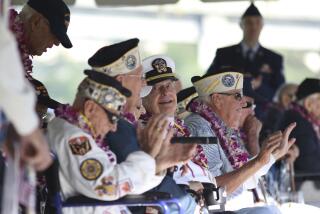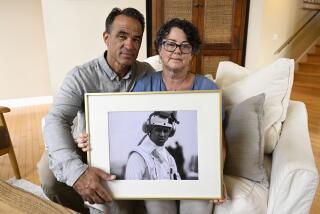Fitting End for Submarine Tragedy
- Share via
The Feb. 9 collision between a surfacing U.S. submarine and a Japanese trawler off Pearl Harbor was an avoidable accident for which the sub’s captain, Cmdr. Scott Waddle, was largely to blame. That is the finding expected from Adm. Thomas Fargo, Pacific Fleet commander, following a lower-level court of inquiry. Waddle would then resign from the service, while retaining his pension. He would not face a court-martial.
This action would bring a reasonable conclusion to a tragic event that took the lives of nine Japanese fishermen and trainees. It was concurred in by a Japanese admiral who was given the unusual privilege of being an advisor to the Navy court.
Events leading up to the collision have understandably inflamed the controversy surrounding it. The submarine Greeneville was not on a routine exercise. It put to sea solely to impress and reward 16 civilians designated “distinguished visitors” by the Navy. As part of this public-relations show the civilians were allowed to handle certain controls under the supervision of crew members.
The hands-on treat had nothing directly to do with the accident. But the presence of the civilians had just about everything to do with it.
Because an earlier lunch for them had run long, the Greeneville was behind schedule, apparently prompting Waddle to rush through a vital safety procedure. He took over from the officer assigned to conduct a periscope search of the surface, ending after only 80 seconds what should have been a three-minute scan.
The cursory search and poor visibility kept the trawler from being seen. Crew members who should have questioned Waddle’s haste or warned that a ship was in the area failed to do so. Navy policy encourages such speaking up, especially where safety is involved. Waddle was one of the Navy’s rising stars, highly rated and remarkably self-assured. The court of inquiry cited a “command climate” aboard the Greeneville that dissuaded subordinates from challenging their captain’s decisions, especially in front of outsiders.
Adm. Fargo is expected to recommend changes in the Navy’s treatment of civilian guests, the most important of which are that no ship should put to sea solely for public-relations purposes and that no risky maneuver--like the sub’s rapid ascent from a great depth that preceded the collision--be carried out only to impress visitors. Had this been the procedure on Feb. 9, a tragic loss of life could have been prevented and the ruin of a career avoided.
More to Read
Sign up for Essential California
The most important California stories and recommendations in your inbox every morning.
You may occasionally receive promotional content from the Los Angeles Times.













